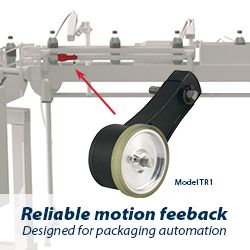Data Creates Both Revenue Opportunities and Technical Challenges for Industrial Manufacturers
New paper from Tuxera details the constraints, risks and solutions when designing robust and reliable storage stacks for optimal operational efficiency in the IIoT market
The exponential growth of data generated in today's modern smart manufacturing operations poses great opportunities for those businesses but also tremendous challenges in how to capture, store and safeguard that data. That market analysis comes in a new white paper from Tuxera, the leading provider of quality-assured data storage management software and networking technologies.
The deployment of Industrial Internet of Things (IIoT) devices, coupled with the use of traditional devices such as sensors, motion controllers, and programmable logic controllers, means that manufacturing businesses are awash in data.
"That data has great financial value, both for improving operational efficiency and for developing new business lines," said the paper's author, Tuxera Product Manager Eva Rio. "However, data is worthless unless it is reliable - partial data or corrupted data can be worse than no data at all - and can be stored securely and accessed as needed."
Companies can use smart manufacturing data for cost-saving internal improvements, such as operational intelligence and predictive maintenance - or to create new external revenue streams. However, the data comes from a vast and diverse array of sources and needs to be stored and processed.
"This results in several significant challenges within the storage stack," Rio writes, including:
• Continuous, write-heavy workloads
• Lifetime and flash wear issues
• Resource-constrained environments
• Real-time operations
• Fast recovery after shutdown
• Interoperability
• Fault tolerance
That means reliability is crucial for embedded devices in the smart manufacturing industry. Field failures and recalls cause downtime, with an estimated cost across all industries of $260,000 per hour, the Tuxera paper reports. Those failures also can cause critical data to be lost and damage the reputation of the company - costs that are immeasurable.
For those reasons, smart manufacturing companies must carefully consider their choices of storage media and flash management and file systems software. Hardware and software must work together to provide optimal environments for data, emphasizing system integrity to maximize device lifetime, minimizing memory wear-out issues and write amplification and reducing the need for wear leveling.
"Storage systems must be able to balance the need for fault tolerance and recovery with performance, write-heavy workloads, and interoperability needs," Rio wrote.
To learn more, download Tuxera's white paper, "Data trends in the smart manufacturing industry and IIoT markets: Implications for the storage stack."
Learn about:
• Data workloads in smart manufacturing, including industry use cases for operational intelligence, predictive maintenance, and new services.
• The implications and challenges for data storage.
• Key aspects of reliability in industrial environments.
• Embedded operating systems and hardware platforms in the modern industrial and automation market.
About Tuxera
Tuxera is the leading provider of quality-assured data storage management software and networking technologies to help people and businesses store and move data reliably while making file transfers fast and content easily accessible.
Tuxera's software is at the core of billions of phones, tablets, cars, TV sets, cameras, drones, external storage, routers, spacecraft, IoT devices, and public cloud storage platforms.
Tuxera's customers include carmakers, device manufacturers, industrial equipment manufacturers, data-driven enterprises, and much more. They rely on Tuxera's software to protect data integrity, improve storage performance, transfer data rapidly and securely, and extend flash memory lifetime in their products and for their projects.
Tuxera is also a member of JEDEC, AGL, SD Association, The Linux Foundation, and other industry associations. Founded in 2008, Tuxera's headquarters are located in Finland, with regional offices in China, Germany, Hungary, South Korea, Japan, Taiwan, and the U.S.
Featured Product

Model TR1 Tru-Trac
The Model TR1 Tru-Trac® linear measurement solution is a versatile option for tracking velocity, position, or distance over a wide variety of surfaces. An integrated encoder, measuring wheel, and spring-loaded torsion arm in one, compact unit, the Model TR1 is easy to install. The spring-loaded torsion arm offers adjustable torsion load, allowing the Model TR1 to be mounted in almost any orientation - even upside-down. The threaded shaft on the pivot axis is field reversible, providing mounting access from either side. With operating speeds up to 3000 feet per minute, a wide variety of configuration options - including multiple wheel material options - and a housing made from a durable, conductive composite material that minimizes static buildup, the Model TR1 Tru-Trac® is the ideal solution for countless applications.
